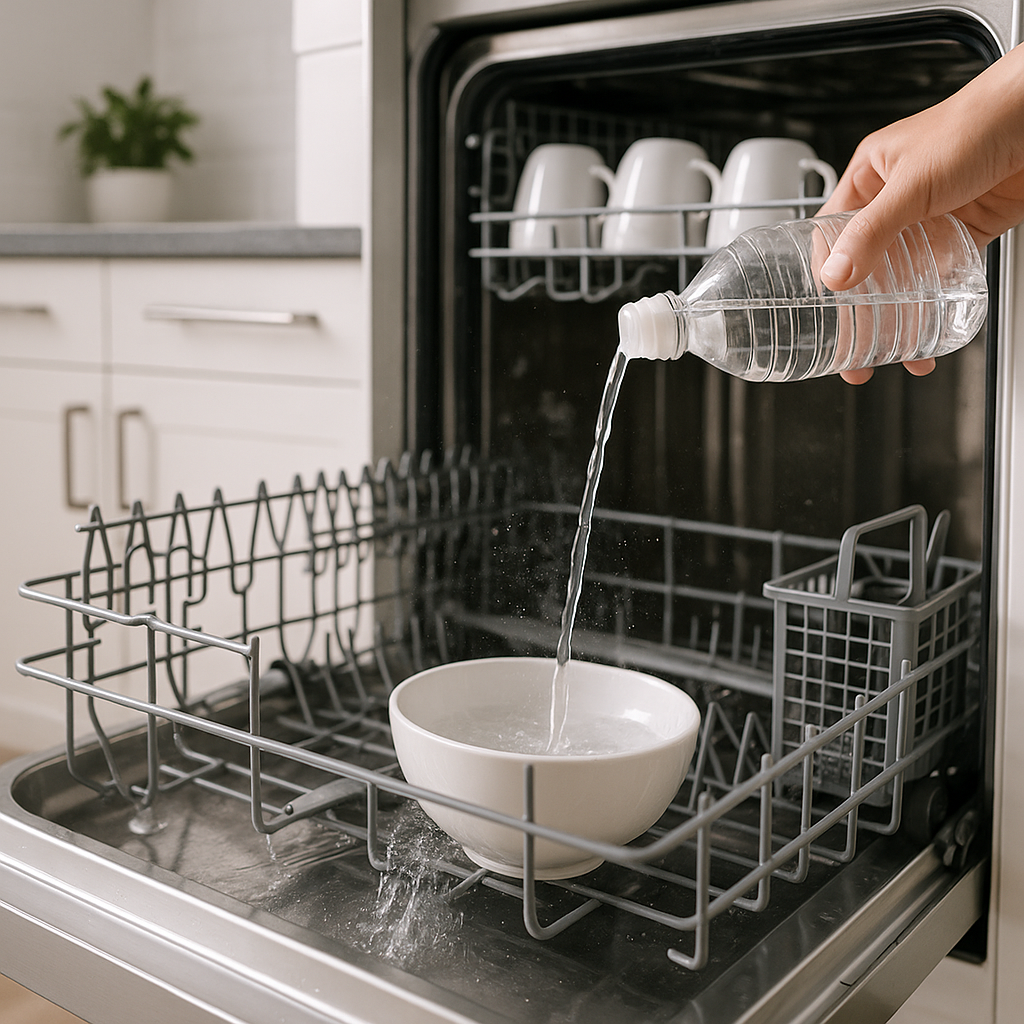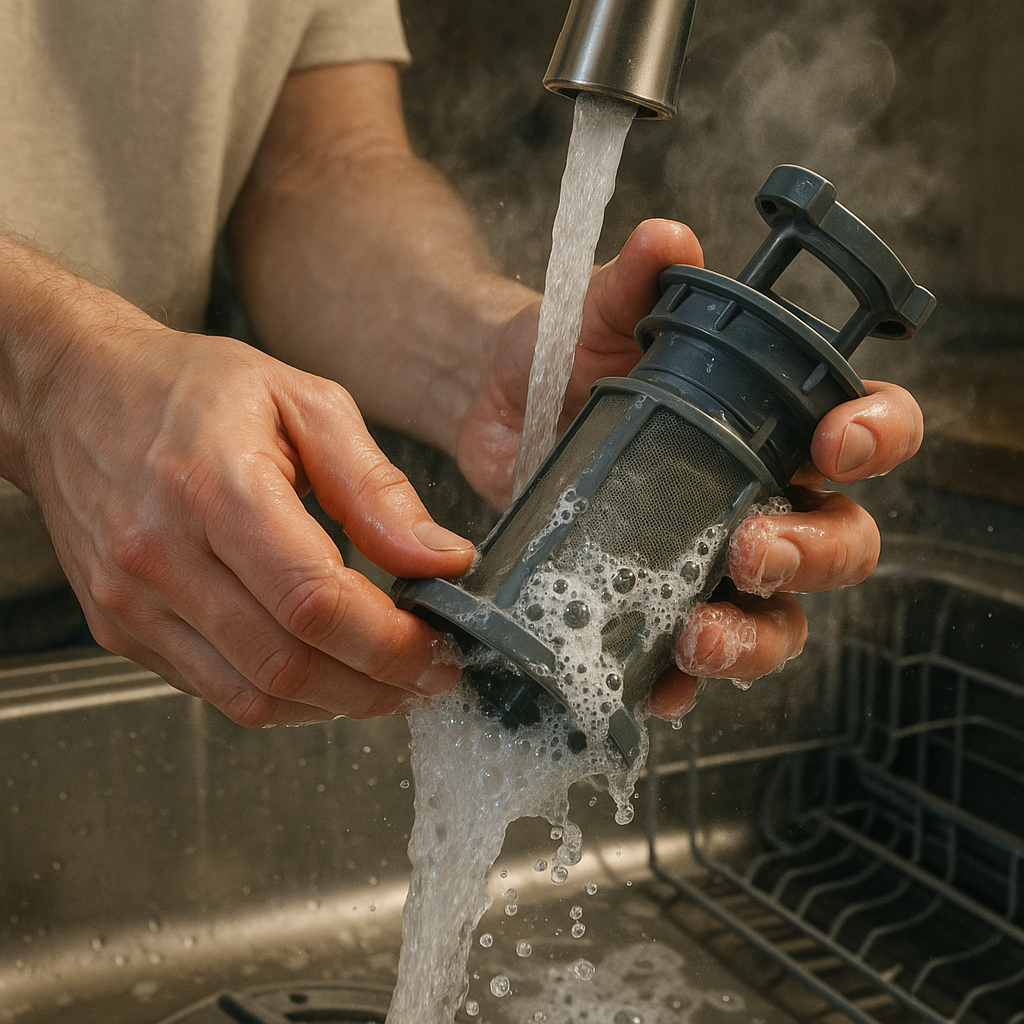There's nothing quite as disheartening as opening your dishwasher expecting clean, fresh dishes only to be greeted by an unpleasant pong wafting from your supposedly spotless crockery. If your glasses smell like a wet dog or your plates have a lingering fishy odour, you're certainly not alone – this is one of the most commonly reported dishwasher issues across households in the UK and beyond.
Why Your Dishes Are Coming Out Smelly
Before we dive into solutions, it's worth understanding what's actually causing this rather embarrassing problem. The lingering smell on your dishes isn't just from the dishwasher itself – it's typically caused by bacteria and microbes clinging to surfaces that haven't been properly removed during the wash cycle.
Several factors contribute to this issue:
- Dirty washer filter – The most common culprit, trapping food particles that become a breeding ground for bacteria
- Hard water film buildup – Creates a rough surface that harbours bacteria, particularly noticeable on glassware
- Residue in hidden areas – Food particles and grease accumulating in gaskets, spray arms, and other hard-to-reach spots
- Inadequate drying – Moisture trapped in the machine creates perfect conditions for bacterial growth
The Most Effective Solution: Vinegar and Baking Soda Deep Clean
Based on user reports and cleaning effectiveness, the vinegar and baking soda method consistently ranks as the most successful approach for eliminating odours from dishes. This two-step process tackles both the source of the smell and neutralises any lingering odours.

Step 1: The Vinegar Treatment
Start by placing 2 cups of distilled white vinegar in a dishwasher-safe bowl on the top rack of your empty dishwasher. The acidity in vinegar effectively breaks down grease, food residue, and mineral deposits whilst acting as a natural disinfectant.
- Run the dishwasher on its hottest cycle
- Turn off the heat-dry option to save energy
- Don't add any regular dishwasher detergent
Step 2: The Baking Soda Boost
After the vinegar cycle completes, sprinkle 1 cup of baking soda directly onto the bottom of the dishwasher. Baking soda's deodorising properties will neutralise any remaining odours whilst providing gentle abrasive action to remove stubborn buildup.
- Run a short, hot cycle
- Again, avoid using the heat-dry setting
- No additional detergent needed
Clean Your Dishwasher Filter Regularly
The dishwasher filter is overwhelmingly cited as the primary source of odour problems. Food particles trapped here create the perfect environment for bacteria to flourish, which then gets distributed onto your clean dishes.

How to Clean Your Filter
Most dishwasher filters are located at the bottom of the machine, often beneath the spray arm:
- Locate and remove – Twist the cylindrical filter a quarter-turn and lift out
- Rinse thoroughly – Use hot running water to remove visible debris
- Scrub gently – Use a soft brush or old toothbrush with mild dish soap for stubborn buildup
- Soak if necessary – For heavily soiled filters, soak in hot soapy water for 15 minutes
- Reinstall properly – Ensure the filter locks back into place correctly
Don't Forget the Door Gaskets and Seals
The rubber seals around your dishwasher door are notorious hiding spots for grime and bacteria. These areas often get overlooked but can significantly contribute to odour problems.
Cleaning the Gaskets
- Use a vinegar solution (1 part vinegar to 2 parts water) on a soft cloth
- Gently scrub crevices with an old toothbrush
- Avoid harsh chemicals like bleach directly on rubber seals
- Dry thoroughly after cleaning to prevent mould growth
Quick Prevention Tips That Actually Work
Prevention is always better than cure, and these user-tested tips will help keep your dishes smelling fresh:
- Scrape (don't rinse) dishes before loading – remove large food particles but pre-rinsing isn't necessary
- Leave the door slightly open after cycles to allow moisture to escape and prevent bacterial growth
- Run hot water at your kitchen tap before starting the dishwasher to ensure the machine starts with hot water
- Use the hottest cycle available regularly – many eco-cycles don't get hot enough to kill bacteria
- Clean monthly with dishwasher cleaner or the vinegar/baking soda method
Natural Freshening Alternatives
If you fancy a change from vinegar, several natural alternatives have proven popular with users:
Lemon Power
Add lemon slices to the cutlery basket or a few drops of lemon juice to the dishwasher before running a cycle. The natural citrus oils help neutralise odours whilst leaving a fresh scent.
Commercial Dishwasher Cleaners
Products like Finish Dishwasher Cleaner or affresh tablets are specifically formulated to tackle dishwasher odours and can be more convenient than DIY solutions. Use monthly for best results.
When to Call in the Professionals
If you've tried these methods and your dishes are still coming out with unpleasant odours, the problem might be more serious:
- Blocked drain hose – May require professional inspection and cleaning
- Faulty installation – Incorrectly installed drain hoses can cause recurring smell issues
- Hard water problems – Consider a water softener if mineral buildup is persistent

Remember, a clean dishwasher isn't just about avoiding embarrassing smells – it's also about ensuring your dishes are genuinely clean and hygienic. With these proven methods, you'll be back to confidently serving drinks to guests without that telltale sniff test!
